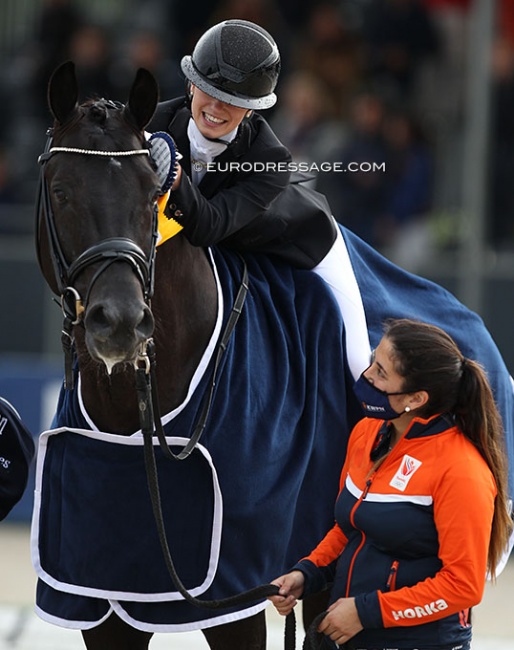
Important information for WBFSH studbooks and national federations, provided by the WBFSH.
The FEI and WBFSH have updated the guidelines for the FEI World Breeding Championships for young dressage horses. As per the previous guidelines, nominations and entries are still made by the national federations, and the selection procedures are to be decided upon by each national federation, in close cooperation with the WBFSH member studbook(s) in that country. The Minimum Eligibility Requirements (MERs) also remain as per past guidelines.
Updates and clarifications have been made to section I.2 (Horse entries), specifically to clarify nominations in countries that have WBFSH members, and countries that do not, as well as the definition of home-bred horses.
Home-bred horses must be registered at birth into a studbook originating in the country of the nominating national federation. These horses must have a Universal Equine Life Number (UELN) that corresponds to the studbook of origin. Therefore, horses are considered foreign-bred if they are born in the country of the nominating national federation but are registered at birth into a WBFSH studbook originating in another country. These definitions adhere to the legally permitted activities of studbooks to operate in another country by extension of breeding territory.
Quotas for countries with WBFSH members are stated in section I.2.1.
Specific quotas have been agreed upon, based on various factors including number of foals born in those countries, whether breeding programs are primarily producing dressage horses or not, as well as overall performance and quality of dressage horses produced. Therefore, Germany, The Netherlands, Spain, Denmark and Sweden may only send home-bred horses (refer Section I.2.1.a)
Other countries with WBFSH members that don’t always or rarely send a full quota of home-bred horses (previously two horses per age group) have been divided into two groups – Section I.2.1.b (may nominate up to 2 home-bred horses per age group) and Section I.2.1.c (may nominate one home-bred horse per age group).
These two groups of countries are also subject to an exception with respect to meeting their quotas. Only when no home-bred horses meet MERs, may these national federations nominate foreign-bred horses (i.e. registered at birth into a WBFSH studbook that does not originate in the country of the nominating national federation). For such nominations to be accepted, official confirmation that no home-bred horses achieved the requested MERs must be submitted to the FEI with the nominated entries list. This is to encourage the filling of quotas with home-bred horses.
Countries that do not have WBFSH Members:
All countries/national federations that do not have WBFSH member studbooks are subject to section I.2.3. They may nominate one foreign-bred horse per age group, provided that the rider has the same nationality as the nominating national federation, and the studbook of origin of the foreign-bred horse agrees to the nomination. The studbook of origin must be a WBFSH member.
Related Links
Eurodressage Coverage of the 2022 World Championships Young Dressage Horses